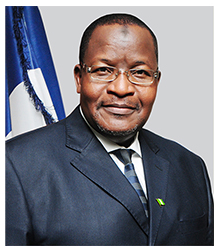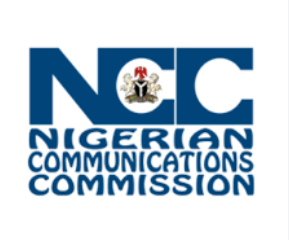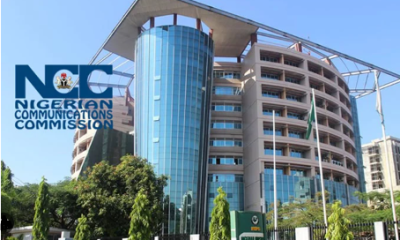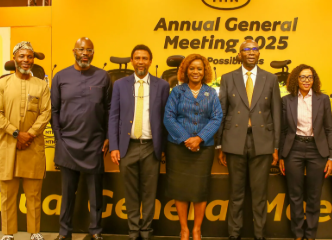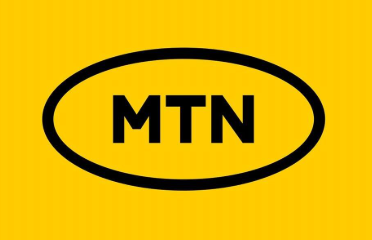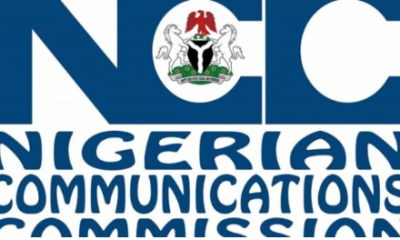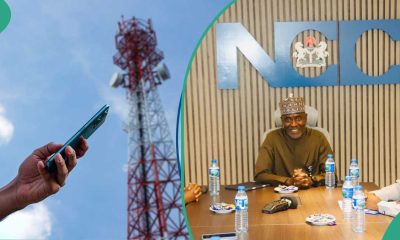FOR the telecommunications sector to further contribute significantly to Nigeria’s Gross Domestic Product (GDP), the need to urgently address the challenges bedeviling the industry has been reechoed.
The Nigerian Communications Commission (NCC), which has been in the fore front of this course, listed some of the challenges to include arbitrary and unfriendly taxes; exhorbitant Right of Way (RoW) levies; vandalism; fibre cuts, among others.
As such and as part of efforts to finding a lasting solution to these challenges, the NCC informed that it has started engaging the Nigerian Governors Forum on the issue.
Disclosing this at the maiden edition of the ‘Telecom Impact CEO Forum’ with the theme: ‘How telecoms can contribute 25% to the GDP by 2025’, the Executive Vice Chairman of the NCC, Dr. Umar Danbatta, who affirmed that the challenges kept growing daily, however, said the commission was currently engaging the Nigeria Governor’s Forum (NGF) with a view to removing the barriers to infrastructure deployment such as fiber optic cables, BTS, and others from their states.
Danbatta said tax friendly policies should be encouraged and that RoW needed to be addressed.
The EVC, who was represented by the Director of Public Affairs, Tony Ojobo, reiterated that the telecommunications sector was one of the fastest growing in the world.
According to him, telecommunications is obviously leading as the aggregate Foreign Direct Investments from 2007 to 2013, ranked it as a contributor of 24 per cent of such projects. “Between 2011 and 2013, telecommunications sector attracted about $6 billion worth of investments, which has accelerated ICT contributions to an estimated 10 per cent, translating to some $50 billion.”
On the topic, Danbatta said the commission does not wish to isolate telecommunications from Information Communications Technology (ICTs), generally.
According to him, there is an undeniable relationship in the world of ICTs towards making this contribution to the GDP, even if telecommunications lead the pack in this direction. “So when we project for 2025, we must take these into consideration.”
The EVC noted that it was the position of the regulator to accurately make a long-term prediction of what the sector of a hugely diverse economy like Nigeria would be in10 years, adding that it was also appropriate to make a prediction where other sectors of the economy are intensely competing to contribute.
“The role of the telecoms regulator is to continue to provide type of environment that will continue to encourage investment and growth. There is no doubt that this is the reason for the exponential growth in active subscriber statistics of more than 150 million lines and teledensity of 107 per cent. This is not comparable with less than 500,000 lines in 2001. It is not by accident that more than 80 million Nigerians have access to the Internet today. These are products of robust regulatory processes.
“Having said these, the telecom regulator is desirous of the ICT sector contributing even more than 25 per cent to GDP by 2025. At the current contribution estimated at 10 per cent, this implies achieving additional 15 per cent over the next 10 years. This is by no means a very tall order, given what we have said about the competition sectors of the economy, which is for the good of the nation in the long run”, he stated.

 Entertainment1 week ago
Entertainment1 week ago
 Entertainment5 days ago
Entertainment5 days ago
 Comments and Issues1 week ago
Comments and Issues1 week ago
 Comments and Issues1 week ago
Comments and Issues1 week ago
 Comments and Issues1 week ago
Comments and Issues1 week ago
 Health7 days ago
Health7 days ago
 Health3 days ago
Health3 days ago
 Football7 days ago
Football7 days ago
